When it comes to conflict resolution, the dominant view has been that God should be taken out of the equation. Rabbi Michael Melchior, the former Israeli Deputy Minister of Foreign Affairs, argues that treating the Israeli-Palestinian conflict as a mere land dispute has been one of the reasons for the failure of the peace process. In this interview with Fathom deputy editor Calev Ben-Dor, Melchior explains why we have to ‘do God’ to secure peace.
Calev Ben-Dor: Many people say religion is a source of conflict. Why do you argue it can be a source of peace?
Michael Melchior: First of all, religion is probably the biggest NGO in the world. It is the biggest component of identity for a great many people and it connects those people to tradition, history, culture and ethnicity. And at the centre is God. Religion plays many different roles – it soothes lives, heals and can provide redemption, but it can also separate people, causing war, hatred and racism.
We know that religion plays a major role in many conflicts. It is often used by the protagonists as one of the ‘reasons’ for conflict. And this leads many people – especially in the Western world – to suggest taking God out of the equation, in order to get on better with conflict resolution and with what they see as the ‘real’ issues. But the world doesn’t work that way. God is very much inside the equation; God is one of the real issues.
What the Israeli-Palestinian peacemakers decided to do was to take religion out of the equation. They wanted a quick fix peace agreement that would deal with certain aspects of the conflict, leaving the existential aspects to be dealt with later. This was attempted in Oslo, Camp David, Annapolis, in George W. Bush’s Road Map, and during the aborted John Kerry-led talks. It has been like going down a blind alley with four flat tyres. The first time around one could say that we didn’t know it was a blind alley. But we should have learned from experience and analysed what went wrong. Why didn’t we succeed? I think everybody will agree that the religious factor was the main thing which blew up the Oslo Accords.
When Oslo was signed I was afraid it would fail because it excluded the religious aspects of the conflict, and the religious leaders themselves. And that is what happened: on both sides it was these excluded groups who blew up the conflict.
Religious spoilers on both sides
On the Palestinian side, the people who made sure that Oslo didn’t succeed were the Palestinian Islamic groups like Hamas and Islamic Jihad, who mounted terrorist attacks. Rabin said, ‘We will fight terror as if there is no peace and continue with peace as if there is no terror,’ but it didn’t work. It couldn’t work. The people saw that ‘peace’ led to terror, and so they didn’t buy into the process.
On the Jewish side we had the religious delegitimisation of the process and the demonisation of the people who led it. We had Baruch Goldstein (who murdered 29 worshippers in Hebron in February 1994) and Yigal Amir (who assassinated Prime Minister Rabin in November 1995). The Palestinians saw Israel putting more and more settlers inside what was supposed to be a future Palestinian state, so they perceived us to be unserious about peace. And we saw that they weren’t serious about peace. 22 years on, neither side believes it has a partner.
CBD: So for you, one reason for the failure of Oslo was what you call the ‘secularising of peace’. What do you mean by that term?
MM: Those who led this process made a major mistake. They wanted the peace process to be part of the secularisation of Israeli society, and it was seen as such by the religious population on both sides. The Oslo architects just didn’t know how to speak a religious language. When they talked about Judea and Samaria – it’s similar today when the Israeli left talks about it – they talked about getting rid of the West Bank; as if it was a burden, as if Israel had no connection to it. As a religious Jew, I believe that Hebron, Otniel and Shiloh are pieces of our heritage. They belong to the Jewish people. A secular language does not speak to the vast majority of Israelis, who look towards religion, tradition and the connection to the land as a major source of their identity.
We have to say this land belongs to us. It’s not maximalist; it belongs to us. We believe in it and have the connection to it. To divide the land is a tremendous sacrifice. It is like cutting off a part of our body. But sometimes one has to do just that to survive. Yet saying we have nothing to do with Hebron, Otniel and Shiloh is cosmopolitan political talk which ignores the issue of identity.
CBD: Even some non-religious people look at it that way.
MM: Yes, because many of the old Zionists saw the Bible as the title deed to the land. It’s not just traditional Jews who were turned away from peace by a kind of cosmopolitan political humanist language. Not just those who are strict on where they put their tea bags on Shabbat. This is about the essence of the identity of people. And when you make people choose between peace and their identity, people will choose their identity.
The Alexandria process
CBD: You have written about ‘systematic conflict resolution in a religious existential context.’ What do you mean?
MM: My first serious attempt to do something in this area of religious peacemaking was in 2002 in Alexandria together with a Palestinian colleague and close friend of mine, Sheikh Talal Sider. At that time I was the Deputy Minister of Foreign Affairs and he was a leading religious figure and a junior minister in Arafat’s government. It was the peak of the Second Intifada and we decided we wanted to do something dramatic by getting all the religious leaders of the Holy Land together. We also involved the Grand Imam as a chairman, together with the Archbishop of Canterbury and the Chief Rabbi of Israel, Rabbi Bakshi-Doron. We brought leading rabbis, church leaders and Palestinian Muslims in order to sign a joint declaration. It was tough but we had a very good conference together.
The Alexandria Declaration became a model in many different places around the world for how to make a religious peace. In Nigeria they carved the same declaration in stone where tens of thousands of people, Muslims and Christians, had been killing each other. And on that basis they made religious peace between Christians and Muslims, preventing all the religious killings in Kaduna, the biggest province in northern Nigeria. Brave people are now taking the Alexandria model into the Boko Haram areas and are doing wonderful work. On the basis of this declaration we also convened an inter-religious council for peace and inter-religious dialogue, with the Chief Rabbi and the Palestinian Authority.
What I discovered was that if you really want to make religious peace, you can’t speak to the mainstream. You need to speak to the radicals, to those opposed and sceptical of peace. Not to the good guys, but to the difficult guys. And they weren’t in Alexandria as they opposed it. What I discovered was that those radicals are the ones we need inside the tent of peace in order to make peace.
That’s much harder, but I set out to see if it was possible. I started having one-on-one conversations on both sides. This has been my main effort in recent years. We now have several centres. The Mosaica centre here (in West Jerusalem), and the Muslim partners that we’re working with have created centres in Kfar Kassem, East Jerusalem, Ramallah, Gaza and now in Cairo. They have a network all over the Islamic world and are winning support for the concept of a religious peace in Israel and Palestine. But we have to realise that we will not become Peace Now. And the other side won’t become Meimad (an Israeli moderate religious party that Melchior used to head). It’s not going to happen – neither with the national religious rabbis, nor Hamas, Islamic Jihad nor the radical Islamic leaders. We’re also not going to find – at least not at this stage of history – an Islamic Zionism, which might be our dream and our hope (and we’re allowed to have our dreams). We’re talking about people who believe in all their hearts that this land belongs to them.
CBD: On both sides?
MM: Yes. It’s the ‘Greater Land of Israel’ on the one hand and ‘Waqf’ (holy Islamic land) on the other. However, there is also modesty on both sides. Both believe that ultimately all land belongs to God. And both have commitment ‘not to do to the other what you wouldn’t want the other to do to you.’ And there are religious precedents written down in piskei Halacha (Jewish legal decisions) and fatwas (Islamic legal decisions) that declare religious peace to be desirable and legitimate. Not a tahadiya (ceasefire) or hudhna (long term agreement) but a salam (peace). This doesn’t mean one needs to give up legitimate aspirations for the future. There can still be a future Caliphate or Messianic times. But these people need to understand that we are currently in a situation where two peoples are living here together and we need to find a solution. It needs to be a solution that is inclusive of both sides, and which will possibly lead to a two-state solution in which there will be a strong Palestinian presence in Israel, and a Jewish presence in Judea and Samaria.
This solution will come from a different starting point: respect that there are another people living here. For me, this is part of the divine plan. It can’t be that we see our return to the land as part of the fulfilment of the vision of the prophets and as part of a divine plan yet think the Divine made a mistake by letting another people live here. This is a priori, for me, though it is probably a posteriori for my rabbinical colleagues. But when the religious sit together – and you see the radical rabbis sitting, learning together with Islamists – they realise that these are serious people who aren’t going anywhere. Nobody is betraying their religion, their tradition, their dreams; they remain fully loyal to those things. But they are willing to face reality and to find a political compromise. It’s difficult, but I am meeting only open doors and I go to some of the most radical leaders on both sides – the more radical the better.
CBD: What are these meetings like?
MM: This past year I have met with many of the leading radical figures in the Islamic world outside Palestine. Our Palestinian colleagues who set these meetings up tell us how ideologically weird it is for them to meet with Zionists! And I’m not just some Zionist rabbi – I am a former Israeli cabinet minister! They haven’t even met a Jew before and now they get everything in one package. They meet with other national-religious rabbis and see the trust and friendship we have created between the Palestinian and the Jewish leadership, and they understand.
These radicals want Islam, even political Islam, to be a part of the world. They want it to be part of modernity without giving up on one letter of the fundamentals of Islam. The Israeli-Palestinian conflict is bad for them. The hatred in their camp against Jews and Israel is not bringing them anywhere good; just as the hatred and racism amongst us is bringing us to new depths. These radical Muslim leaders feel that putting the Israeli-Palestinian conflict behind them serves Allah and the purpose of Islam. It’s not something they do for the sake of our blue eyes, but it is part of an overall strategy of where they want Islam to go. For us it’s also part of our purpose of having a State of Israel – a Jewish state. We have a state not just to provide a safe haven for Jews, but also to sanctify God’s name. And how amazing would it be if we could build a model of religious peace that becomes a model for Nigeria, Baghdad, Kashmir, Paris and Sri Lanka? We are on the verge – a lot has gone under the radar.
CBD: Have you been frustrated by the tendency of the media to emphasise extremism amongst religious groups?
MM: In the Haaretz peace conference they didn’t get how sensational it was that somebody like Sheik Abdullah Nimr Darwish spoke. He told us how he had created the Islamic movement and Islamic Jihad, had been in prison for terrorism, but has now decided that he is going to spend his life making peace. On the same platform was Rabbi Avi Gisser, Rabbi of Ofra, the biggest settlement in Samaria, who also expressed his intention of making religious peace. Sheikh Raed Badir (prominent leader of the Islamic Movement in Israel) was also on the panel. But what did Haaretz put as their headline the next day? That Martin Indyk supports the Oslo Accords. That’s the news?! It seems that if peace comes from another place than this ‘safe place’ of the (secular) tribe, it’s not desirable. Somehow, it is threatening, so it is ignored.
CBD: You’ve talked about meeting with very sceptical Islamists.
MM: Not only sceptical, I’ve talked with the people who have written the books about how to blow us up.
CBD: So what happens at these encounters?
MM: Together with Jewish and Islamic friends, I present our concept of religious peace. We must get over some psychological barriers. Eventually, they say, ‘Well, if it doesn’t come from secular Tel Aviv people who want to corrupt our tradition, but from religious sources, that’s a different story. Nobody ever talked to us in this language. We’re on board.’ When they join the coalition, they begin to speak in a different language. No one who has agreed to be part of the network has subsequently returned to writing the things they did before.
Religious peace after Duma
We had an encounter after the terrible events in Duma (when Jewish hilltop youth set fire to a Palestinian home, killing three of the family members). Some right-wing rabbis called me and said they wanted to do something – not just to condemn the murders but also to meet some of the Islamists. I agreed to organise it, but on condition that it wasn’t a onetime encounter. Ultimately a group of leading rabbis from Tzohar, the Chief Rabbi of Jerusalem, and others met with a group. We prayed. The debate was very hard and the accusations were very tough.
When there was the horrific act in Itamar a couple of years ago (when five members of the Fogel family were killed by two Palestinians), Sheik Raed Badir and the others called the leaders of Hamas and told them of their intention to publish a harsh statement condemning the incident and that they wanted Hamas to accept it. They released a statement on the Islamic Movement’s website saying that, we should have had a Palestinian state a long time ago, but if this heinous crime is the way to obtain a Palestinian state, we will wait another 1,000 years. And then he said that if you (Israelis) think you can keep on having the State of Israel by doing acts like Duma, you’re not going to keep the State of Israel either.
CBD: Do you want recognition? Do you want them to view you as a legitimate, historical entity?
MM: No. I don’t need that. I don’t need Islam to become Zionist. I want them to live in peace with the State of Israel, not to accept our narrative of ‘We’ve come home here to our historic land.’
CBD: And we don’t need to accept their narrative?
MM: No we don’t. I’m willing to do that, but I don’t expect that from my colleagues. That’s not the kind of utopian peace we’re talking about. But we can live in a peace with common values and common ideals. If all the parties are inside the tent – and I’m hearing this from more and more of the people we’re getting to – peace will look very different. We need everybody – Fatah and Hamas as well as all parts of Israeli society – inside that tent.
CBD: What sort of approach to Hamas would you like to see?
MM: Hamas needs to come around to being a part of this deal, of being inside the tent of peace. I follow Hamas internal debate, and there are more and more serious religious and political leaders inside the movement who want it to be like the Tunisian Ennahda party, which constitutes a wonderful model for an Islamic party. It’s part of the Muslim Brotherhood, but also part of modernity and part of living together in a society. There are many people in Hamas who want their organisation, together with Fatah and the other parties, to be part of peace here. These guys are different from Daesh and other Islamic anarchists. But they also want something to come out of it so that down the road they won’t look like Palestinian President Abbas, who doesn’t get any response from the Israeli side.
CBD: This is a political question rather than a religious one: what does peace mean to you?
MM: The politicians will have to work out the deal. I don’t expect this of the religious people. Maybe the deal will be very close to the Clinton Parameters. Maybe there are issues in which the religious leaders will have a stronger input. When it comes to the issue of the Jewish presence in the Palestinian state, I think that’s something that secular leaders previously couldn’t envision but is now increasingly being talked about. Again, when everybody is inside the tent, peace becomes much more realistic. If half the Palestinians are going to blow up the deal, it’s not very realistic.
CBD: Before July 2000, you and your partners came up with some ideas regarding Jerusalem that were rejected. What were they?
MM: When it came to the Old City we thought about having joint Israeli-Palestinian sovereignty over Jerusalem, and joint Jewish, Christian and Muslim religious steering of the Old City. Any change could be vetoed. My Muslim partner Sheikh Darwish said that if the Jewish Messiah comes and instructs us to build the Temple, he would be the first one to carry the stones for the building of the Temple, even though he is crippled. If that’s the will of Allah, then that’s the will of Allah.
CBD: Your discussion of leaving things until messianic times reminds me of the Talmudic idea of Teiku (an issue that in the ‘here and now’ is left undetermined but which in the end of days will ultimately be resolved). Should we put some things aside and forget about deciding who has ‘won’?
MM: Yes. And another judicial principle that exists in both Jewish and Muslim law is a situation in which two people argue over a tallit (prayer shawl) and both claim that all of it is theirs. In such a case, they have to go to court and swear that half is theirs (because if they both swear that all of it is theirs, one of them is lying). They still believe that all is theirs, but they divide it and share it. This exists in both Jewish and Muslim law.
The Torah tells us the whole land belongs to God and we all are temporary residents here. Muslims have the same concept. Sovereignty is a modern political concept, not a judicial Jewish or Muslim one.
CBD: Even though they are supportive of Israel, many Jews feel uncomfortable with fundamentalist Christians who believe that sometime in the future we’ll convert and embrace Jesus. Are you not suggesting something similar? Don’t you too believe that that in the far-off future we will be proven correct and all the land will be ours, but in the meantime we’re going to live and let live? Is there a difference?
MM: I don’t care about their dreams for the future. I have a problem with what they do today. To have a messianic idea for the future is legitimate. I don’t understand why people were so angry at Tzipi Hotovely’s dream of an Israeli flag on the Temple Mount. It might not be the most diplomatic idea. As the Deputy Minister of Foreign Affairs, at this point of the violence – when we’re trying to do reduce the hate propaganda about the Jews wanting to burn down Al-Aqsa and rebuild the Temple – I’m not sure hers was the brightest statement. But in principle, what’s bad about that?
CBD: So from your perspective, at a meeting between religious Jews and religious Muslims, when someone says, ‘I dream about one day the third Temple being rebuilt’ and someone else says, ‘I dream about one day being in Jaffa’, that’s all OK?
MM: Over the summer I wrote that Jews pray for the return of the divine presence to Zion and that this is my dream, my prayer, my wish. I pray for this every day. But I also wrote that in the meantime this dream is out of bounds. For my Islamic friends, this was fine.
CBD: Do you feel like you’re making progress?
MM: Yes. This past year Yom Kippur and Eid al-Adha overlapped for the first time in 33 years. The heads of the Jerusalem Police came to my office and said they had warnings of terrible riots – both on the Jewish and the Muslim side – and asked me to use my contacts. We went to the most radical leaders – not part of the coalition, but the real radicals who have the most influence – and said: do you want this day to be a bloodbath? They issued a fatwah, which most radicals signed, saying that all Muslims have to respect the Jewish holiday of Yom Kippur. It appeared in the Palestinian press and was displayed in all the mosques. The rabbis published a statement that people driving on Eid are not disrespecting the day, or meaning to disturb Yom Kippur. And these were the quietest days we’ve had. It shows how much influence they have over the people. The police came to me afterwards and said, ‘You do this for three days, why can’t you do this the whole year?’

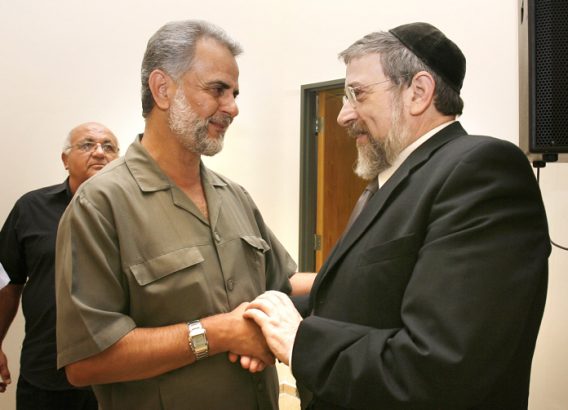
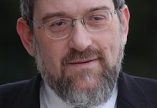
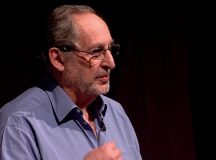
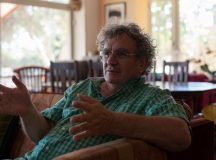
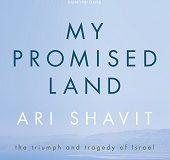































Been there, did that. Almost 10 years ago Rabbi Melchior and I went over all this and he wasn’t convincing then and a lot more has happened.
fleshisgrass.wordpress.com/2006/09/13/rabbi-michael-melchior-in-conversation-iconoclasts-bbc-radio-4/